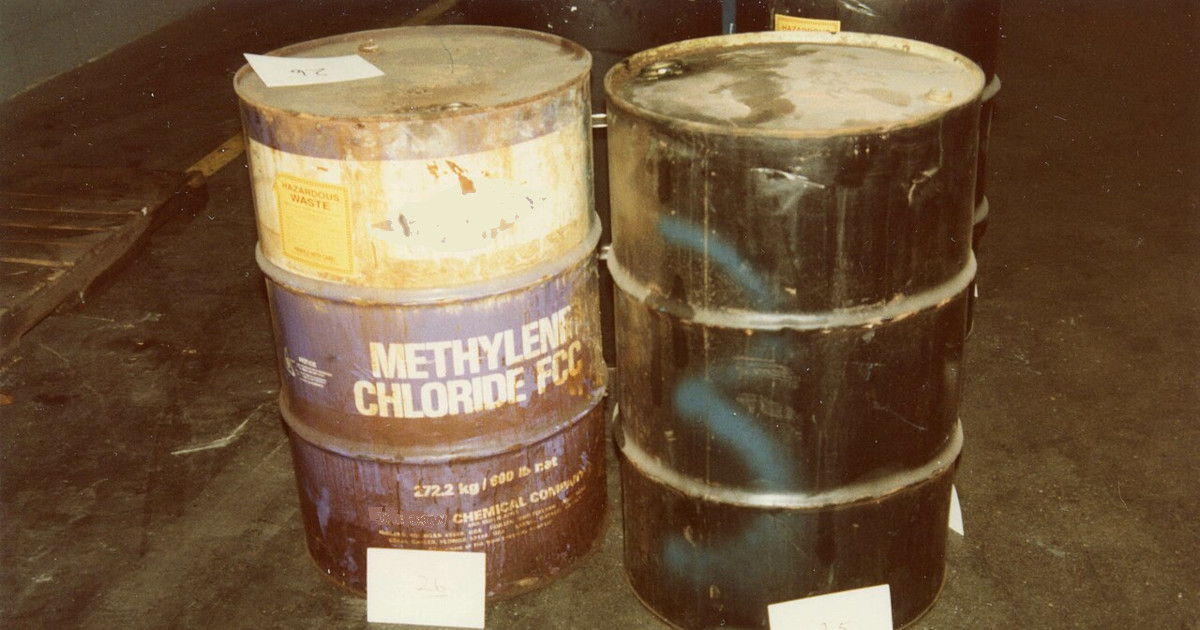Final rule is among first final actions under reformed Toxic Substances Control Act (TSCA)
Health advocates applaud EPA action that will save many lives, while urging greater protections for workers
WASHINGTON, DC—Today, EPA Assistant Administrator Michal Freedhoff finalized a rule to prohibit all consumer and most commercial and industrial uses of methylene chloride under the Toxic Substances Control Act (TSCA). The final rule comes nearly eight years after EPA prioritized the chemical as one of the “first ten chemicals” for review under the reformed chemical law.
The final rule prohibits all consumer uses and most industrial and commercial uses of methylene chloride, including degreasers, spot removers, and paint or coating removers, among others, with workplace protection requirements for certain allowances for federal agencies.
Toxic-Free Future applauds the final rule while decrying limitations to its scope in some industrial settings as potentially leaving some workers vulnerable to its hazardous and sometimes deadly effects.
Health advocates made the following statements in response to this news:
“This rule represents long overdue action to finally get methylene chloride, a known chemical danger, out of our homes and workplaces. We were privileged to advocate for this rule alongside mothers who lost their sons to its deadly effects and bravely brought their stories to Washington, DC,” said Liz Hitchcock, director of Safer Chemicals Healthy Families, the federal policy program of Toxic-Free Future. “Congress updated TSCA so that EPA could finally take action on chemicals like methylene chloride. As glad as we are to see today’s rule banning all consumer and most commercial uses, we are concerned that limits to its scope will allow continued exposure for too many workers to methylene chloride’s dangerous and deadly effects,” she continued.
“I fought this fight for my son, Joshua. This fight never should have had to happen, and never should have taken this long. Methylene Chloride should never have been on the market,” said Lauren Atkins, whose son Joshua died using a coating remover that contained the chemical. “It took three grieving, angry mothers and a brother who would not be silenced, to achieve this. Never underestimate a mother who has lost her child!” she concluded.
“I applaud the EPA for taking steps to ban methylene chloride, but they can do better to protect vulnerable workers,” said Annie Hoang, MD MPH, who co-authored a report on methylene chloride related deaths for the University of California, San Francisco Program on Reproductive Health and the Environment (PRHE).
“EPA’s action today is a strong step forward in updating our public health and environmental policies, in keeping with modern science and a clear mandate to prevent loss of life,” said Cindy Luppi, National Field Director for Clean Water Action, which mobilized its membership and coalition partners and testified directly in support of this action. “We celebrate this step and honor the memory of all who lost their lives tragically from coming in contact with this toxic chemical.”
“We are excited that EPA is finally joining retailers in banning methylene chloride, and is going further by banning this deadly chemical in even more products,” said Mike Schade, director of Mind the Store, a program of Toxic-Free Future. “This critical new rule will go a long way in protecting people from exposure to this cancer-causing chemical. EPA’s next step should be to provide clear guidance for brands and retailers on evaluating the hazards of alternatives, to ensure companies move toward truly safer solutions.”
“For too long, methylene chloride has stripped the health from American workers while it strips off paint and grease. EPA’s new rule will accelerate the drive to safer chemicals and safer methods that still get the job done,” said Charlotte Brody, RN, vice president for Occupational and Environmental Health at BlueGreen Alliance.
“EPA’s action today will finally protect people from deadly and dangerous methylene chloride,” said Paul Burns, executive director of the Vermont Public Interest Research Group. “But we must recognize that it’s been a long time coming and has cost too many lives. Chemicals that present this kind of acute and long-term threat to human health have no business being sold in the public marketplace.”
BACKGROUND ON METHYLENE CHLORIDE
Methylene chloride, also known as dichloromethane or DCM, is an organohalogen solvent used in paint strippers, adhesives, and other products. It has been linked to cancer, cognitive impairment, and immediate death by asphyxiation. Acute exposure to the chemical resulted in a documented 85 deaths in the U.S. between 1985-2018, according to a peer-reviewed study by the University of California, San Francisco Program on Reproductive Health and the Environment.
Toxic-Free Future and health advocates nationwide have worked for nearly two decades to strengthen federal protections from toxic chemicals through the Toxic Substances Control Act (TSCA), the main federal law that regulates chemicals allowed in commerce.
After years of advocacy by a coalition led by Toxic-Free Future’s Safer Chemicals Healthy Families program, the outdated 1976 TSCA was reformed for the first time in 2016, giving the EPA needed authority to ban harmful chemicals like methylene chloride. From 2017 to 2019, Toxic-Free Future’s Mind the Store program led a national campaign securing commitments from more than a dozen major retailers including Lowe’s, The Home Depot, Walmart, Amazon.com, Sherwin-Williams, Menards, and others to stop selling paint and coating removers containing methylene chloride and another hazardous solvent, NMP. Since 2022, Toxic-Free Future has led coalition partners in comments, testimony, and meetings with EPA to advocate for a strong final rule on methylene chloride.
For more, check out Toxic-Free Future’s timeline of events.
TOXIC-FREE FUTURE
Toxic-Free Future is a national leader in environmental health research and advocacy. Through the power of science, education, and activism, Toxic-Free Future drives strong laws and corporate responsibility that protects the health of all people and the planet. www.toxicfreefuture.org
###
MEDIA CONTACT
Stephanie Stohler
Photo credit: Massachusetts Dept. of Environmental Protection, CC BY 2.0, via Wikimedia Commons. Photo modified by removing branding.

